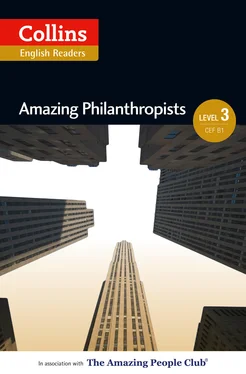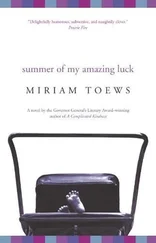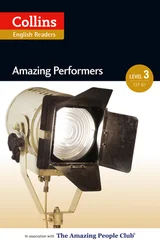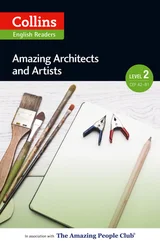
1835–1919
the businessman who built libraries for poor people
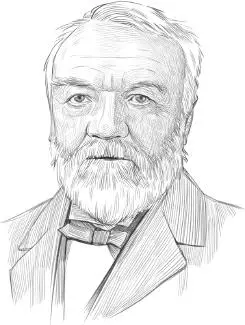
In 1901, I became the richest man in the world. I had made my money from iron and steel. I did not want to be the world’s richest man when I died, however. So I decided to give all my money away.
My story is about a poor boy who became a very rich man. I was born on 25 thNovember 1835 in Scotland. My parents both came from working families who earned a living with their hands. My mother’s family were leather workers. My father made linen by hand. We lived in Dunfermline, a small Scottish town near Edinburgh, and life was not easy. My father had to work hard to earn enough money to buy food for us. He was angry that life was so difficult for working people and he joined a group called the ‘Chartists’. The Chartists were working men who wanted a better future.
At that time, only rich men were able to vote or become Members of Parliament. The Chartists believed that all men should have a vote. They were also worried about safety at work. The Industrial Revolution was happening all across Europe at this time, and people were inventing bigger and better factory machines. Because the machines were new, however, they caused many accidents. The Chartists wanted factory owners to take better care of their workers. Many people in government believed that the Chartists were dangerous revolutionaries.
Our house was a noisy house. My father and my Uncle Tom were always discussing politics. Uncle Tom did not like the queen or the church. My Uncle George loved Scotland, and often performed the poems of Robert Burns, Scotland’s most famous poet. I learned an important lesson from these noisy men. If you want to change things, you must have power. And to get power, you must have money.
I had to leave school when I was only 11, so my education was short. I started learning my father’s trade. But some days there was no work, and the pay was terrible. Things got worse because factories were using machines to make cheap linen. Their linen was much cheaper than our linen which was made by hand.
The year 1848 was a year of revolutions in Europe. The German philosopher Karl Marx wrote The Communist Manifesto , and workers in many countries wanted to improve their lives. It was a year of change for our family too.
My father came home one day and said that there was no more work. He said we had no choice – we must emigrate to the USA. Two of my mother’s sisters had already moved there. We sold our furniture, packed our few things and set off on a great adventure.
The journey across the Atlantic was wonderful and terrible. I was 13 and very excited. But the sea was very rough and many of the passengers were sick. We had very little space or fresh air and the journey took 50 days. But we were the lucky ones. There were often fires on ships when they crossed the Atlantic in those days, and many people died at sea. We arrived in America on 5 thJuly, and continued by train to Pittsburgh in Pennsylvania, where my aunts lived.
My father and I found work in a clothes factory, and we lived in a small house that one of my aunts owned. I wasn’t able to go to school, so I had to teach myself in the evenings. We lived near a man with a large personal library, who allowed people to borrow his books. I always remembered his kindness.
I worked all day in the factory. The pay was terrible, and I only earned $1.20 a week. Then I had some good luck. The Ohio Telegraph Company was advertising for young men to carry messages. In those days before the internet or even telephones, messages were sent by telegraph. I got the job and was very happy. Instead of spending all day in a dark and dirty factory, I could now enjoy being in the sun and fresh air. The pay was much better too. Suddenly I was earning $5 a week. I was on my way to a better life.
There was another advantage too. Taking messages to the theatre was one of my regular jobs and I was allowed to stay and watch the plays. Often they performed Shakespeare which was an amazing experience for a young boy like me.
For three years I worked at the Telegraph Company. I learned to use the telegraph machine, and soon I was sending and receiving messages. I was a quick and happy worker. Then I got a new job as secretary to Thomas A. Scott of the Pennsylvania Railroad Company. Mr Scott became like a second father to me. He helped me to make investments and even lent me $600 to invest in another railway company, Adams Express. When my first dividend for $10 arrived in the post, I was very excited. My business career had started.
But 1856 was also a very sad year in our family, because my father died.
I made more investments, taking Mr Scott’s advice. I borrowed money from the bank and invested in railways and railway bridges.
And then the American Civil War started. In 1861, the North (called the ‘Union’) and the South (called the ‘Confederacy’) of America went to war over slavery. Mr Scott and I were sent to Washington to help the Union Army. We set up a telegraph service, and we organized the Army’s transport system. I was injured when I was cutting Confederate telegraph lines.
I was given three months off work in 1862, and I decided to visit Dunfermline with my mother. I had forgotten how beautiful Scotland was and how much I loved our country.
Four years later, the North won the war and four million black slaves became free. Six hundred thousand soldiers were killed in the war, and it was a terrible time for the USA. But the end of the war was a fantastic opportunity for a businessman like me. During the war, I had met useful people and I had seen opportunities. Now I invested $11,000 in an oil company. Within the first year, I had already made a lot of money.
Конец ознакомительного фрагмента.
Текст предоставлен ООО «ЛитРес».
Прочитайте эту книгу целиком, купив полную легальную версию на ЛитРес.
Безопасно оплатить книгу можно банковской картой Visa, MasterCard, Maestro, со счета мобильного телефона, с платежного терминала, в салоне МТС или Связной, через PayPal, WebMoney, Яндекс.Деньги, QIWI Кошелек, бонусными картами или другим удобным Вам способом.
